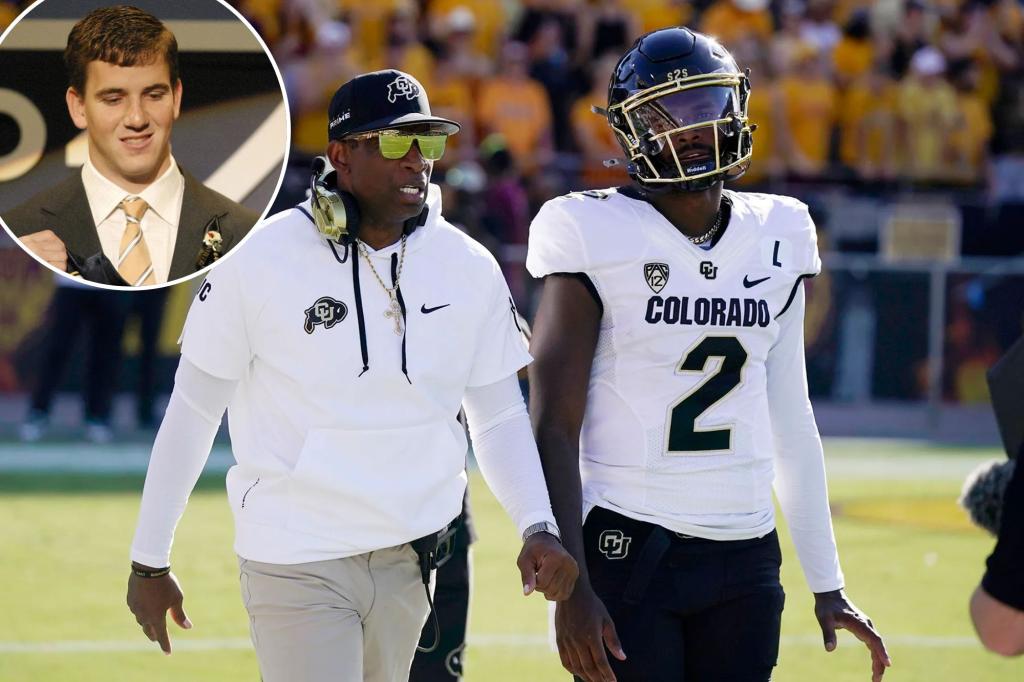The upcoming NFL Draft is generating a lot of buzz as teams prepare to make their selections. One of the most anticipated picks is expected to be Caleb Williams from USC, who is predicted to be the first overall pick for the Chicago Bears following the trade of Justin Fields to the Steelers. However, there is already chatter about the 2025 draft, thanks in part to Deion Sanders. Sanders, a Hall of Fame defensive back who is now a college coach at Colorado, recently mentioned on a podcast that his son Shedeur, a star quarterback for the Buffaloes, and Travis Hunter, a standout cornerback and wide receiver for the team, would have a say in which teams they play for in the future.
Deion Sanders made the comments about his son and another player potentially controlling their draft destinies while speaking on the “Million Dollaz Worth of Game” podcast. Sanders stated that he knows where he wants his son and the other player to go in terms of their future team selections. This approach is reminiscent of the move made by Eli Manning 20 years ago when he influenced which team would draft him. It highlights the increasing level of control and influence that players and their families are exerting over the draft process, a trend that could have long-lasting implications for the NFL and how teams approach player recruitment and selection.
The idea that college players could have a say in which teams they play for in the NFL is a significant departure from the traditional draft process. Historically, teams have had full control over which players they select and where they end up playing. However, with the rise of player empowerment in sports and the increasing influence of social media and personal branding, athletes are beginning to challenge the status quo and seek more agency in their professional careers. Sanders’ comments suggest that players and their families are becoming more assertive in shaping their futures and potentially dictating where they end up in the draft.
Deion Sanders’ statements about his son and another player potentially choosing their NFL teams underscore the evolving nature of the draft process and the power dynamics at play in professional sports. By suggesting that these players could have a say in their future destinations, Sanders is placing an emphasis on player autonomy and agency in a league where teams have historically held all the cards. If this trend continues, it could lead to a shift in the balance of power between players and teams, with athletes gaining more control over their careers and where they play. This could have far-reaching implications for the NFL and how franchises approach player recruitment and retention.
The prospect of college players like Shedeur Sanders and Travis Hunter having a say in their NFL destinies is a compelling development that could reshape the draft landscape in the years to come. As more athletes seek to exert greater control over their careers and where they play, the NFL may need to adapt its approach to player recruitment and selection to accommodate these changing dynamics. With stars like Deion Sanders advocating for players to have a voice in their future team selections, the league could be on the cusp of a significant shift in how the draft process unfolds. It will be interesting to see how teams, players, and the NFL as a whole respond to this growing trend of player empowerment in professional sports.


